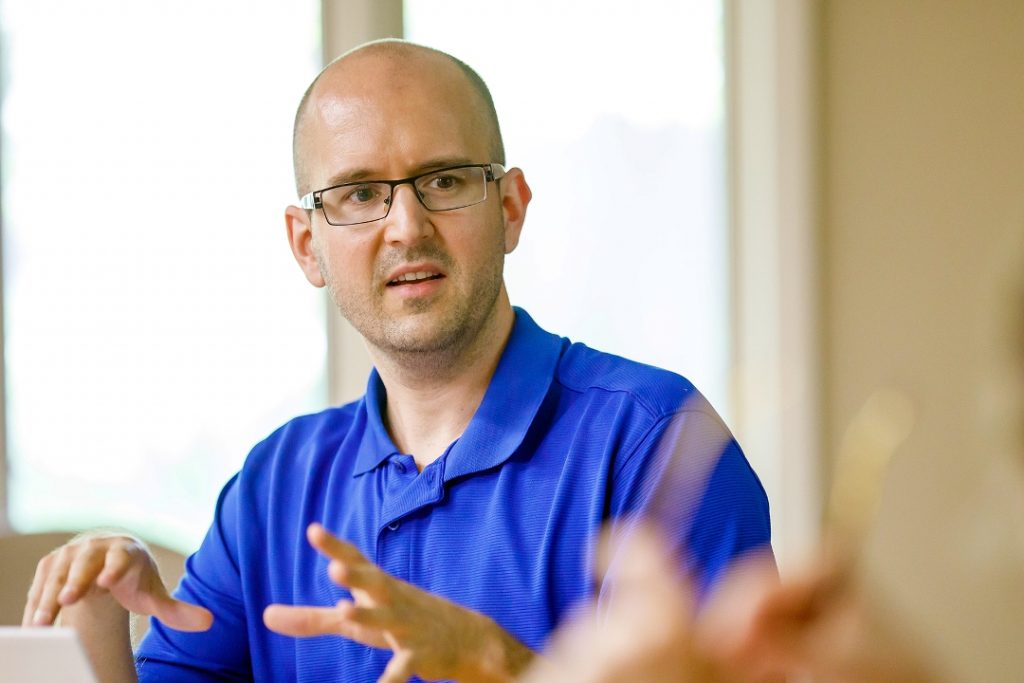
Jacob Elias Curtis participated in the August 22 commencement and commissioning service of Anabaptist Mennonite Biblical Seminary (AMBS), Elkhart, IN. He graduated from AMBS in May 2020 with a Master of Divinity with a major in Pastoral Ministry.
Curtis — who names his home communities as Dublin, Ireland; Denver, Colorado; and Goshen/Elkhart, Indiana — also was selected to receive this year’s Award for Excellence in New Testament Exegesis from the seminary’s Bible Department and this year’s Heart of the Community Award.
In May, Curtis and his wife, Michelle Curtis (MDiv 2018), became co-pastors of Ambler (PA) Mennonite Church, a congregation of Mosaic Mennonite Conference.




